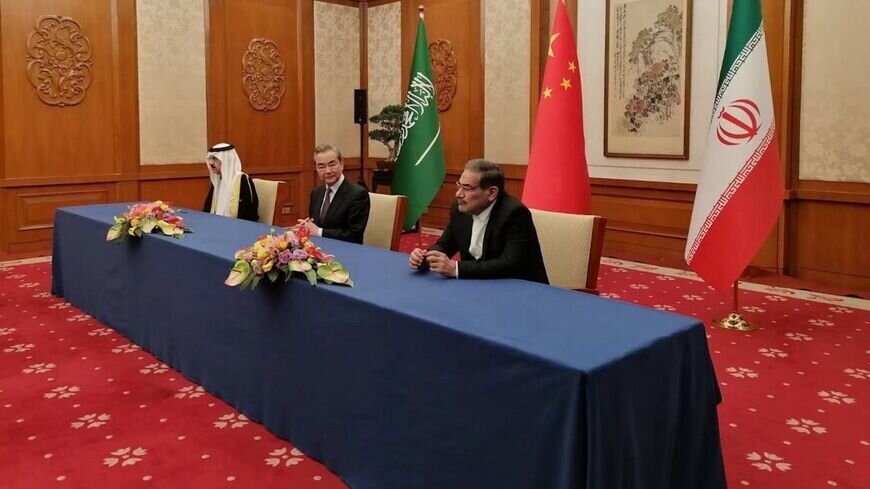Who won, who lost?
Iran-Saudi deal unleashes wave of optimism

TEHRAN – In a surprise deal that put an end to seven years of tensions, Iran and Saudi Arabia agreed to patch up their ties. The deal had many winners and losers.
While many observers were skeptical about any imminent thaw in Iran-Saudi relations, top security officials from Iran and Saudi Arabia secretly traveled to the Chinese capital to put the finishing touches on a deal that would end seven years of tensions between the two regional heavyweights.
The deal, brokered by China, was announced all of a sudden on Friday, drawing mixed reactions from countries all over the world.
According to the joint statement put out by Iran, Saudi Arabia, and China, “The three countries announce that an agreement has been reached between the Kingdom of Saudi Arabia and the Islamic Republic of Iran, that includes an agreement to resume diplomatic relations between them and re-open their embassies and missions within a period not exceeding two months, and the agreement includes their affirmation of the respect for the sovereignty of states and the non-interference in internal affairs of states.”
The statement added, “They also agreed that the ministers of foreign affairs of both countries shall meet to implement this, arrange for the return of their ambassadors, and discuss means of enhancing bilateral relations.”
Almost all countries of the West Asia and North Africa region welcomed the deal. Iranian Foreign Minister Hossein Amir Abdollahian received a considerable number of calls from foreign officials congratulating him on the development. Also, the countries of the region issued statements welcoming the Iran-Saudi thaw.
In addition, many groups in the region expressed satisfaction with the deal. Lebanese Hezbollah chief Sayid Hassan Nasrallah described the deal as benefiting the region. Yemen’s Ansarullah also said that Tehran and Riyadh need diplomatic relations.
Iraq, Jordan, Egypt, Oman, the United Arab Emirates, Qatar, Lebanon, Pakistan, and Turkey are among the countries that welcomed the restoration of ties between Tehran and Riyadh. This widespread welcoming derives from the fact that the majority of countries and groups of the region benefit from better Iranian-Saudi relations. In addition to the three parties to the deal, all the above countries and groups are considered to be winners.
The deal, however, has its own losers the biggest of which is Israel. This was on full display as soon as the tripartite deal was announced.
Avigdor Liberman, a former Israeli minister, called on Israeli Prime Minister Benjamin Netanyahu to resign over the Iran-Saudi deal because it was his personal fiasco.
Former Prime Minister Yair Lapid described the deal as a dangerous development that deprives Israel of its regional wall against Iran. “The agreement between Saudi Arabia and Iran reflects the complete and dangerous failure of the Israeli government's foreign policy,” Lapid said, according to Israeli media.
Former Prime Minister Naftali Bennett said the resumption of ties between Iran and Saudi Arabia was a “serious and dangerous development for Israel” and a "political victory for Iran.”
“This delivers a fatal blow to efforts to build a regional coalition against Iran,” said Bennett.
He then lamented, “Countries in the world and the region are watching Israel in turmoil over the dysfunctional government that is engaged in systematic self-destruction.”
But Israel wasn’t the only loser. The U.S. standing in the West Asia region also received a blow. The tripartite deal was done purely by Asian powers, which marks a significant shift in the geopolitics of the region. Gone are days when the U.S. was the majordomo of the region.
In addition to the U.S. and Israel, there is another loser that is holding its breath to see what comes next: the Iranian opposition. Several Iranian oppositionists have been pinning their hopes on Saudi Arabia and its media empire and petrodollars. They used to think that Saudi Arabia would throw its weight behind them in their quest to bring down the Iranian political establishment. But the Friday deal caught them completely off guard, prompting them to look for new patrons.
Leave a Comment